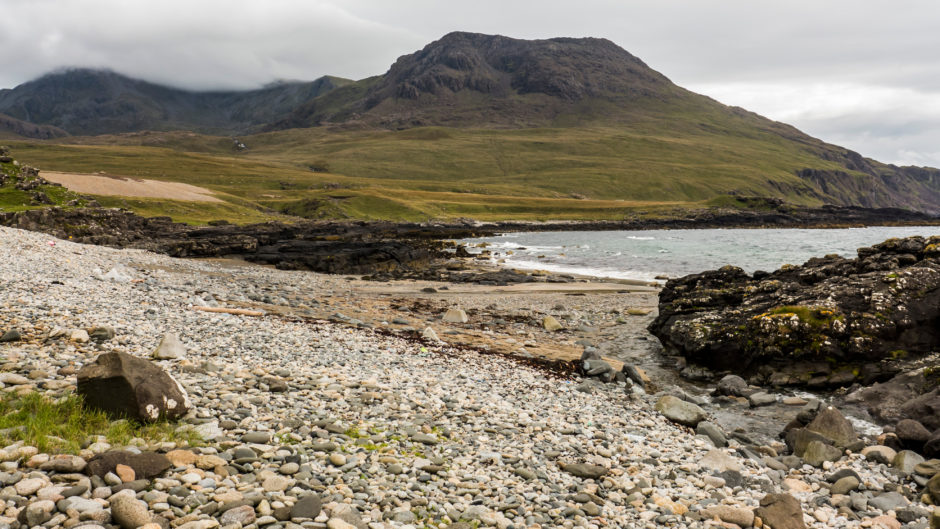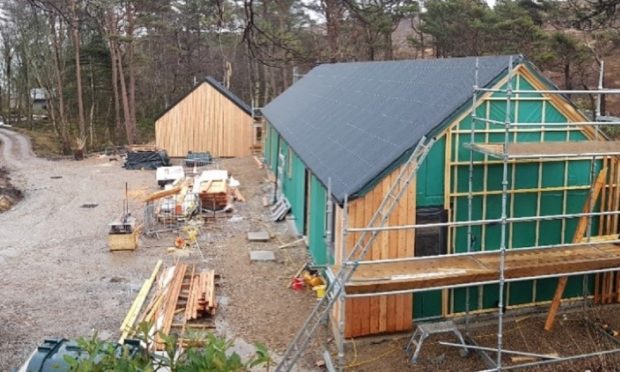Four houses being offered for rent on the island of Rum have attracted thousands of inquiries from around the world.
The “overwhelming” response has led to 430 firm applications for the properties from people keen to start a new life in the remote community, which currently has a population of just 32.
Families and individuals have contacted the Isle of Rum Community Trust (IRCT) from across the UK, Europe, the US, Canada, Argentina, Morocco, South Africa, India, the Philippines and Australia in the hope of joining the community – with the Covid-19 pandemic a factor in people’s desire to move.
The four, two-bedroom homes on the edge of Kinloch, the island’s only village, are being offered by the community to help sustain the population.
Only six children live on the island and there is just one child in the nursery and two in the primary school.
Trust development officer Steve Robertson said: “We’ve had at least 3,000 inquiries, which is incredible.
“We weren’t trying to gild it and say Rum is a beautiful, perfect place to live, it’s just Rum, and it’s hard work like any small community.
“But if people don’t know what Scotland is like, and don’t know what small islands are like, then their imagination might run a bit wild.
“There seems to be an appeal to escape, to start a new life and the package we are offering ticks a lot of boxes for people.”
He said there appears to be a link to Covid-19, adding: “I suspect some people have thought about it, and why not?
“No one knows what the future is and if people want to think of the future with further lockdowns it might appeal to them. It’s part of the picture.”
Mr Robertson said the response has challenged the volunteers on the trust who are still receiving applications several days after the deadline.
“It’s a welcome challenge and there are some very good applications, so if we can get people here it will work well for us,” he said.
“We want dynamic people, jobs, kids, things that are essential for communities and we need people with energy to put into our board to make things work.”
He said in future the trust may release land for people to build houses and develop businesses. “
It’s really important for us to get the houses built and the people in and hopefully it will add depth to the community with new skills,” he said.
“Obviously there are a lot of people who think they can do that.
“We also want and need to get private investment in and all that brings.
“If our rented houses in Rum appeal to thousands of people around the world I would imagine building your own house with private access to the sea will appeal to lots of folk too.”
The new homes have largely been funded by the Scottish Government, with further support from fish farm company Mowi and hotel group, the Crerar Trust.
They will be completed this month and it is hoped the new occupants will arrive by November.
In the meantime, the trust will whittle down the list of potential islanders who will be interviewed online before visiting Rum ahead of allocations being decided.
New islanders will need to plan how to live in remote community

Rum is one of the Small Isles, located south of Skye and about 20 miles from Mallaig.
The CalMac ferry runs five times a week in summer and four in winter, while another boat runs twice a week during summer.
The island has a shop/post office, teashop and visitor centre, but no doctor.
The nearest medical practice is based in Mallaig, 20 miles away by boat and the nearest hospital is a further 45 miles away in Fort William.
The occupants of the new houses will have stunning views to the Rum Cullin mountains as well as sightings of red deer, feral goats, Highland cattle and ponies which roam free across the island.
But new islanders will have to have a plan for how they would support themselves living in a remote community.
Although there are no direct jobs available, there are self-employment opportunities for tradesmen and tourism-related posts linked to the environment and wildlife.
Home working will be attractive, as last year Rum became the first Scottish island to have high-speed fibre broadband to all homes.
However the capacity of the hydro system is limited and the island grid cannot cope with sudden high peaks and troughs in demand.
Residents are therefore encouraged not to use too many electrical appliances and items such as panel heaters, electric showers, tumble dryers and electric cookers are not allowed.
